'I Was Scared I’d Lose It Completely In The Middle Of A Course Where I Had Nowhere To Hide'
Katie Dawkins explores how grief can affect your golf game. But can golf be used as a way to help with bereavement?
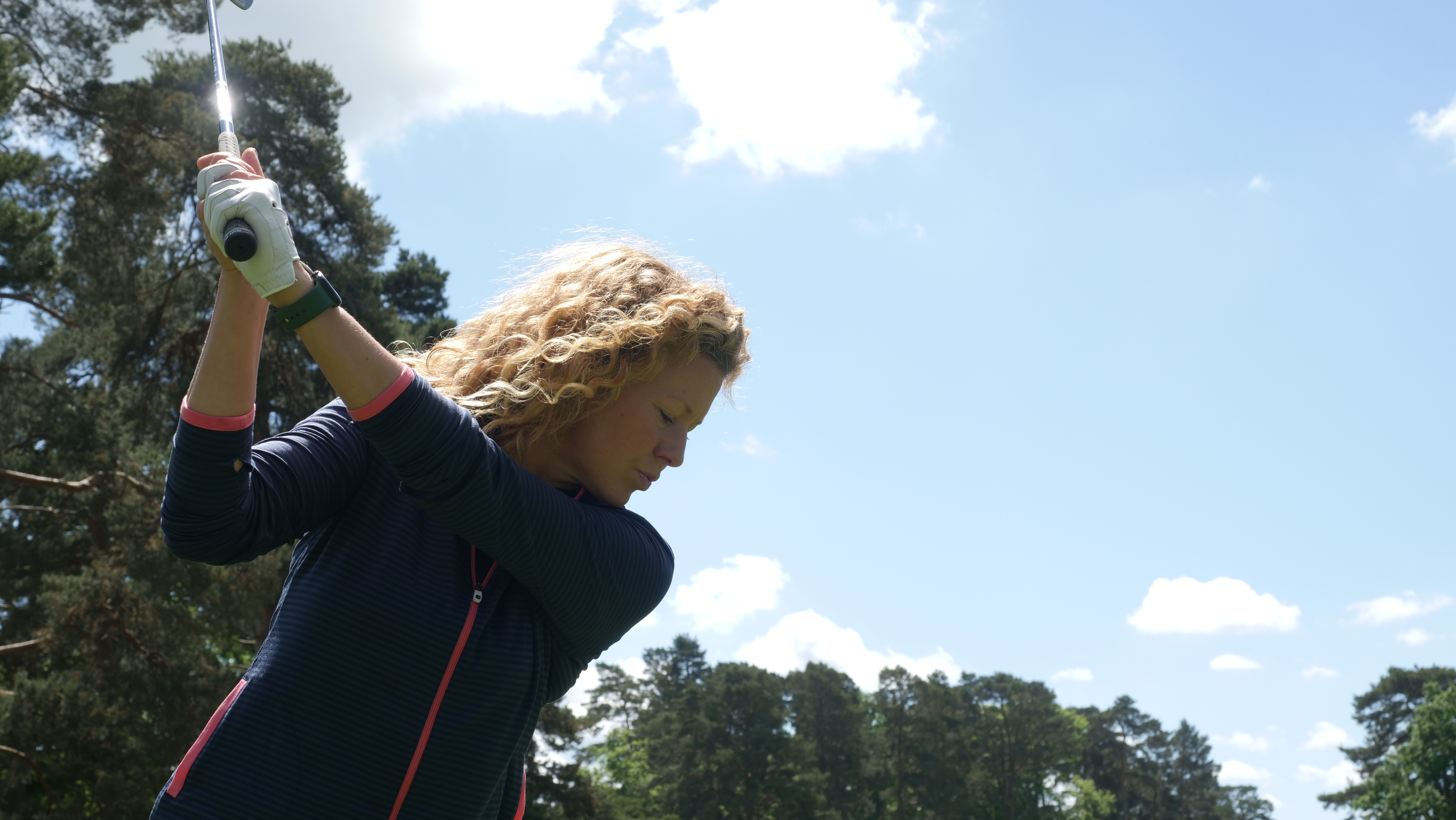
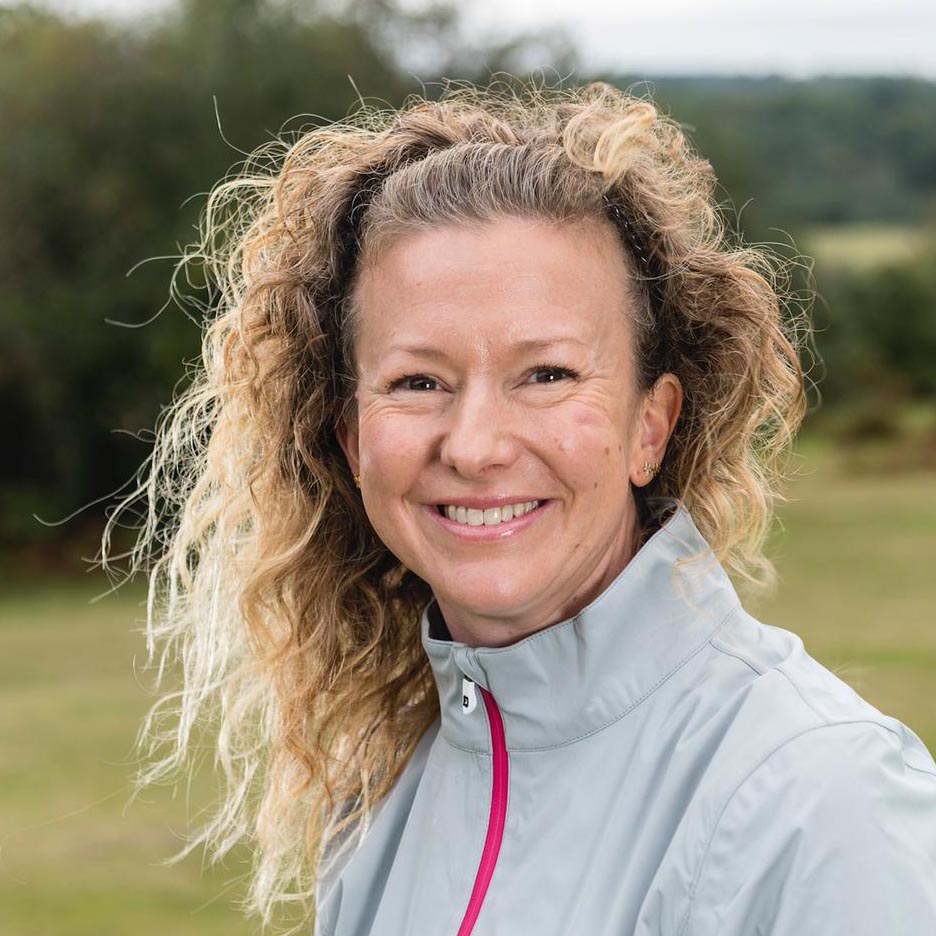
With life comes death and grief is something we will all experience in our lives. But it does come in so many forms, different losses can have varying effects on your life. Everyone is different and we all grieve differently, so where does golf come into this?
I don’t think enough people take into account the effect grief can have on us. I've taught pupils who can’t understand why they can’t score or keep a round going. Often it’s revealed that they’ve experienced recent trauma and weren’t giving the effects that loss had on them physically and emotionally any allowance.
Their golf was suffering because they weren’t sleeping and tension levels were at an all-time high. They had a hundred things to do, like organising a funeral and tidying financial affairs. Their mind just wasn’t on their golf game. Acknowledging this almost allowed them to breathe and use golf to switch off and not expect too much, but simply chase a ball about.
Putting golf into perspective following a death is essential. Suddenly a missed putt doesn't matter as much and a golfer is able to deal with poor shots in a more carefree manner. Worse things happen in life than a duffed drive. Often players find what golf means to them has changed. Some find it spurs them on to be a better golfer, as that’s what their loved one they lost would have wanted, but everyone is different.
Using golf as a tool to comfort is something I’ve explored over the years. I’ve taught pupils who have found that golf has literally saved them following the loss of a spouse for example.
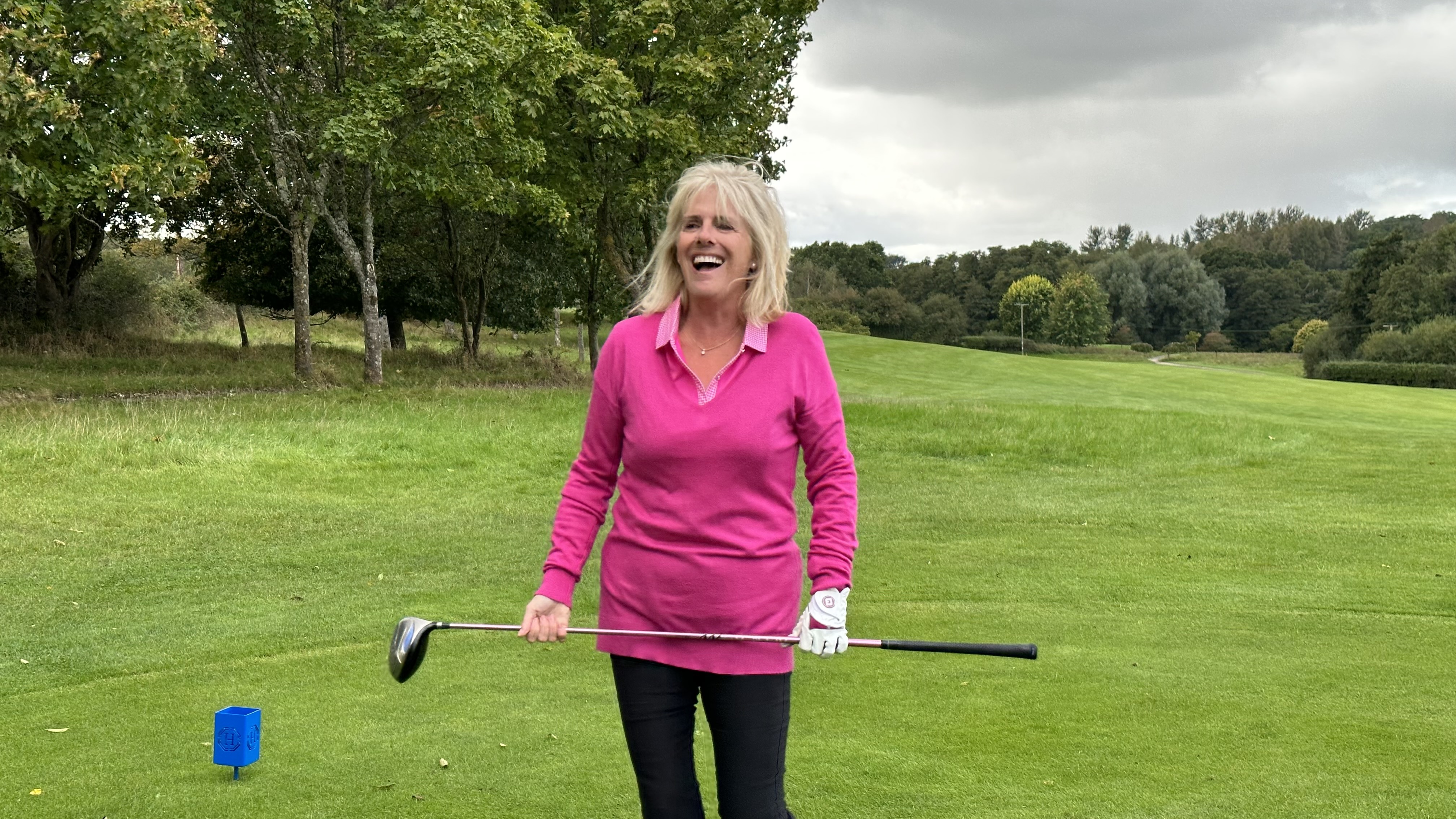
Sue found a huge amount of comfort as well as distraction in golf following the sudden death of her husband
One of my pupils, Sue Stehr, lost her husband in 2022 very suddenly. It shook her world and when looking at a venue for the wake (a golf club) she found herself thinking that golf could be just the distraction she needed.
She began lessons with me earlier this year and golf has given her so much. Distraction yes, but more than that, she’s found her tribe, a truly awesome support network. I was able to connect her to another member at Hamptworth, Lynne Angel, who had also experienced the sudden loss of her husband, and they get each other.
Get the Golf Monthly Newsletter
Subscribe to the Golf Monthly newsletter to stay up to date with all the latest tour news, equipment news, reviews, head-to-heads and buyer’s guides from our team of experienced experts.
Studies show that prolonged loneliness is as bad for our health as smoking! On suddenly losing the love of your life, it would be easy to hide away and not want to watch everyone just carrying on with their day-to-day life. Getting out and involved somewhere that gives you friendship, fresh air and physical exercise can only help.
But, what if you’re an established player and have years of golfing experience under your belt. I think this depends on a person’s character, how steely they are and how they can control emotion.
Look at Justin Rose, who like a Phoenix from the fires of loss climbed to great success following the death of his father. Mel Reid won in Prague on the LET after her mother died suddenly in a car accident, then had a lull in her game - admitting she nearly gave up - before rekindling her passion to win again.
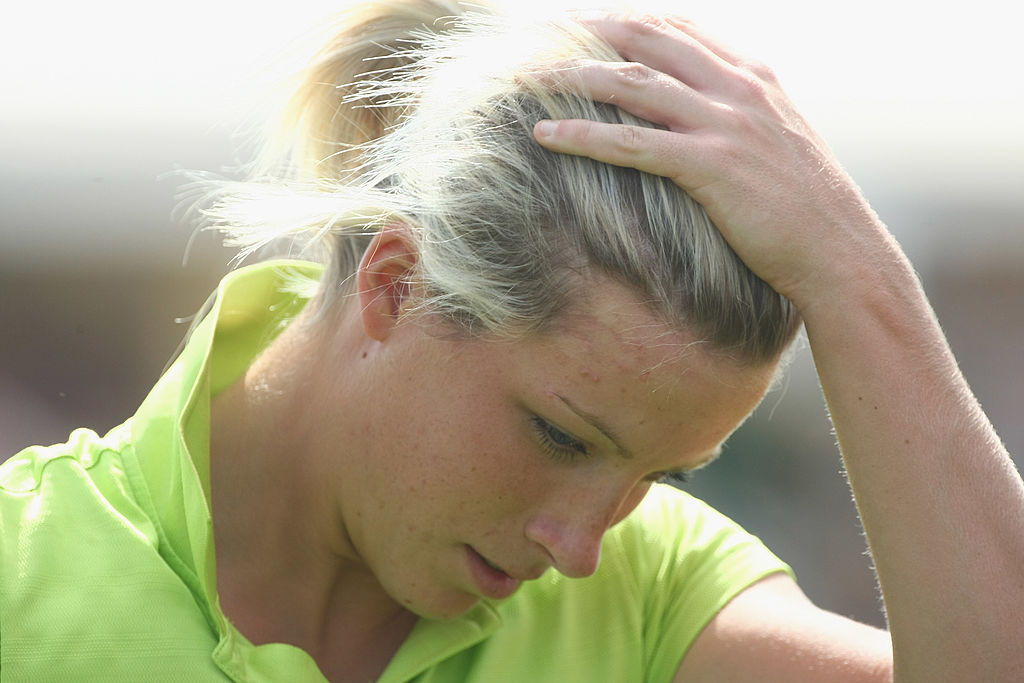
Mel Reid said “You never ever forget what happened, you never ever forget the pain, but you must use it almost like an energy. Giving up is the easy thing to do.”
Darren Clarke won all 3 of his matches in the 2006 Ryder Cup when his participation was in doubt, as this followed the death of his wife Heather to breast cancer. The outpouring of emotion following his singles triumph (over Tiger Woods) was intense and tears rolled. Clarke says of his 2011 Open victory that his wife was with him for the entire Major.
This is something that many sports people will experience. That ability to dig deep and get the job done, often playing phenomenally followed by the eruption of emotions as if they’d been held back with such immense force. Andy Murray in the recent Davis Cup match broke down following his win, he’d missed his gran’s funeral to play in the tournament. Grief can be a powerful tool in competitive sport, but it can also cause players to simply drop away because digging deep and finding inner strength doesn’t come easily for some.
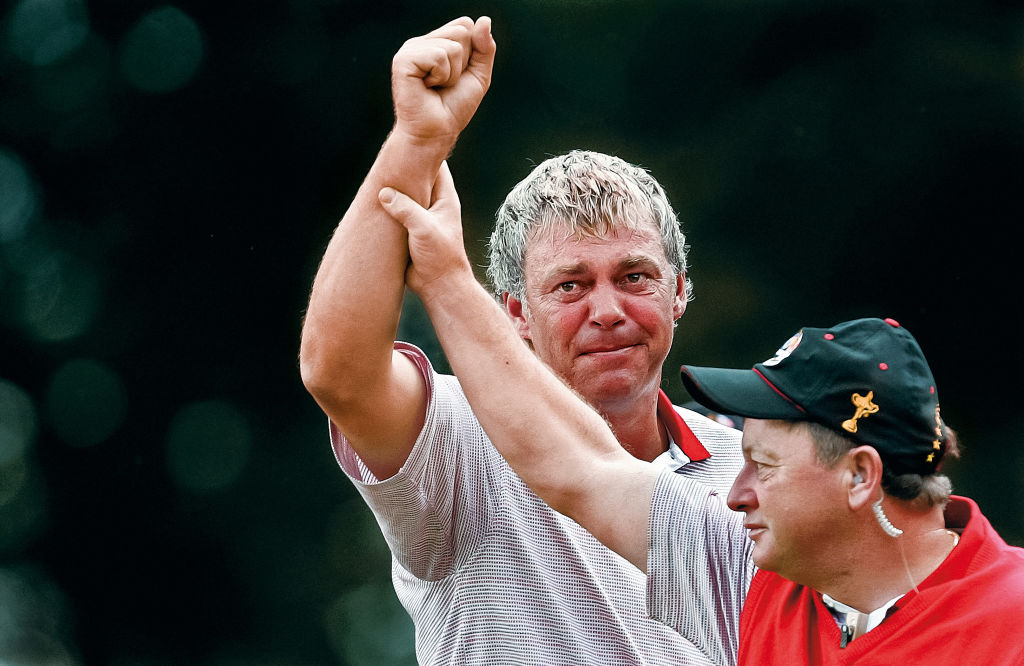
Darren Clarke won all 3 of his matches in the 2006 Ryder Cup following the loss of his wife Heather just weeks before
Golf reveals the vulnerable side of us. It exposes who we really are and we learn a huge amount about our ability to cope with emotion when we play this game. Add into this gut wrenching pain and trauma and you can find yourself in a bit of a pickle. Frustrations on the course can cause cracks in our self control and out of these cracks can escape emotion we’ve been stowing away for some time.
For some, the quiet of the course isn’t a place where they can keep it together, at least not in the early stages of grief. I couldn’t go on a golf course to play when I lost my son Teddy to cancer in 2016. I was wholly aware I needed to be busy with physical jobs or coaching someone else. Focusing on their games, not myself.
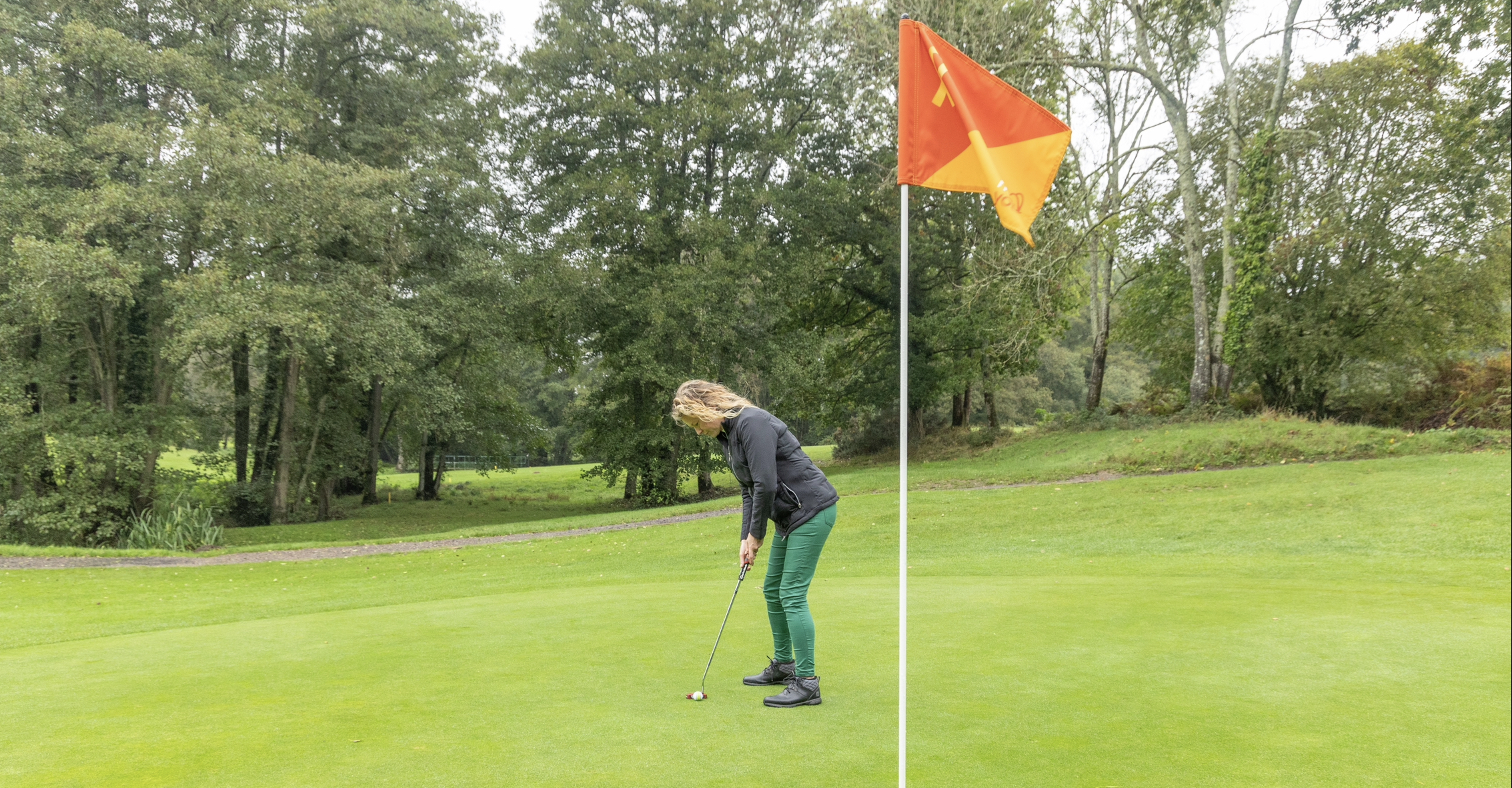
Following the loss of her son, Katie struggled to spend time on the course. Four hours is a long time to contemplate what had happened and this was terrifying
Getting on the course allows us to switch off and think about our golf, yes. But it also allows your mind to open up and contemplate other things. There’s time to walk and ponder and this headspace may be good for so much, but I found it terrifying. I didn’t want to stop and think about the unthinkable. I was scared I’d lose it completely in the middle of a course where I had nowhere to hide. Four hours is a long time to contemplate what had happened and this was scary. I did eventually play, it was probably about 7 months after Teddy’s death at Celtic Manor with my husband. It was all going great until I got into a bunker and the sand was so similar to that on a Cornish beach, it triggered a memory. I proceeded to leave my ball in the bunker, something I never do, and just sat down and sobbed.
What I want to say is that you have to be kind to yourself and know when you are ready for certain activities. Be aware of what might trigger you. Although often triggers catch you off guard, you can plan. Whether that’s a season, a texture, a place. I think it’s good to have this knowledge and you can actually use it to let go. I yearned to cry before that bunker. It allowed so much pain to spill out and wow did I feel better afterwards. Other golfers assumed I was just having a bad round. I’ve stuck to 9 holes predominantly since, as I still like to be busy. This may sound like a form of avoidance but it’s more like self protection. Too much time for me and I become a bit unstable. I’ve now worked through much of this now, but in those early days it was terrifying.
That awareness of what will trigger and awareness of the need to protect yourself can be useful. Genelle Aldred, a fellow Golf Monthly contributor, is fairly new to golf, taking it up in 2021 and she chose the sport because a golf course is somewhere she viewed as a predominantly adult place. Following the loss of her daughter, she was aware that a bustling family environment wasn’t what she wanted to expose herself to. But after a lockdown spent on her own, she knew she needed that fresh airy space and time to focus hard on being badass at golf. She also ploughed energy - as so many do - into fundraising and her golf has enabled her to raise awareness of baby loss. Herself and Mike Harris, the Content Director for ball sports at Future, played a different hole on 18 different courses in a day and raised over over £2,000 for Sands (Stillborn and Neonatal Death Society). This was such an emotional ordeal for both of them having both lost babies and experienced intense grief. The challenge also raised awareness surrounding baby loss, a subject not discussed enough.
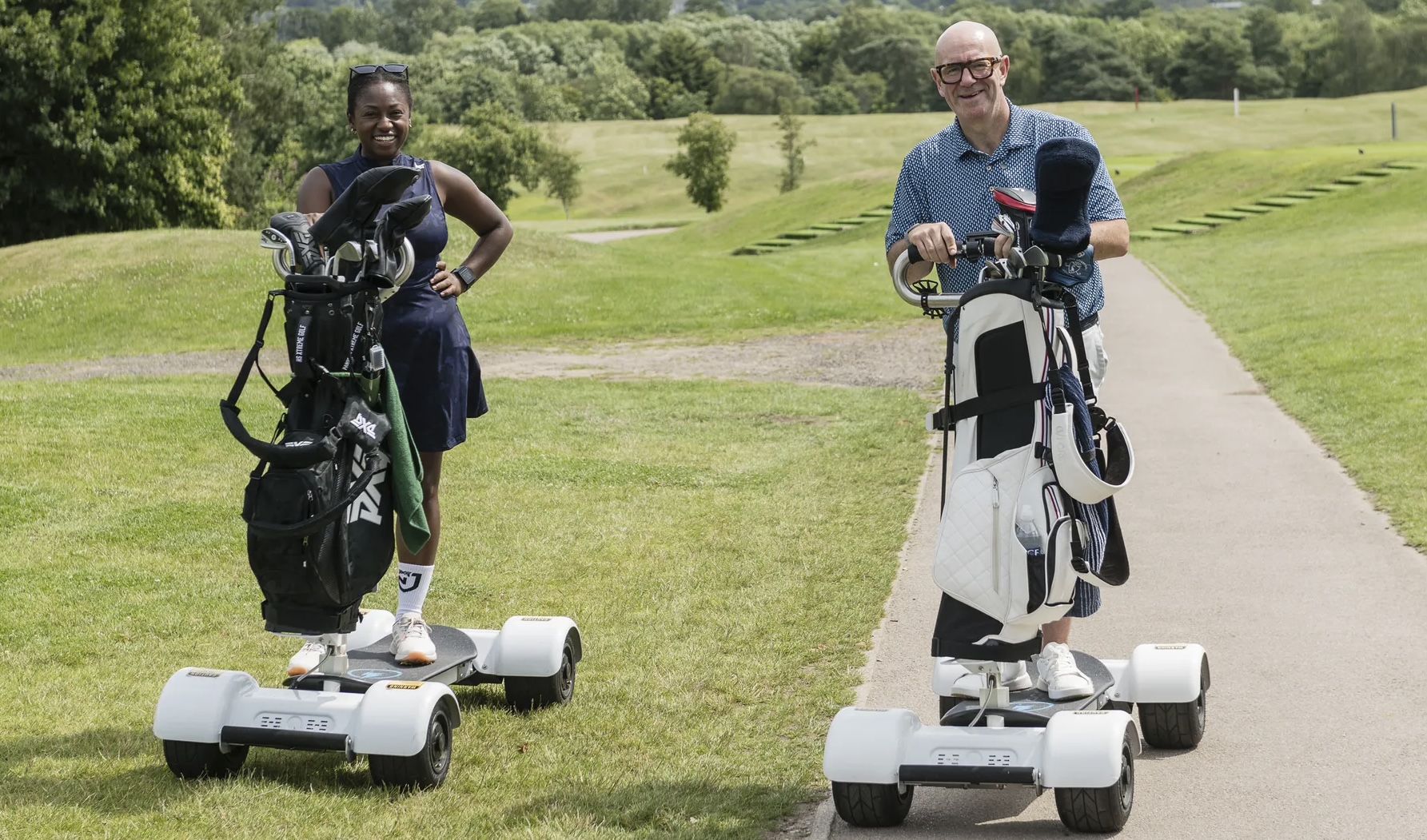
Genelle and Mike raised money for Sands playing 18 holes on different courses in one day
Another subject that is not spoken about enough is childhood cancer. PGA professional and director of The Shire, Ceri Menai-Davis, lost his son Hugh to cancer shortly after his 6th birthday. He and his wife Frances threw their energy into creating the charity It’s Never You, to help support families of children with cancer, offering financial and emotional support in a time when the rest of the world keeps turning yet yours comes to a violent halt. They are on a mission to bring in Hugh's Law, a 7 point plan which is so desperately needed to support families while children go through treatment or sadly die from cancer. Hugh’s Law (which recognises the financial strain that comes with caring for a sick child) has already had its first reading in the Houses of Parliament.
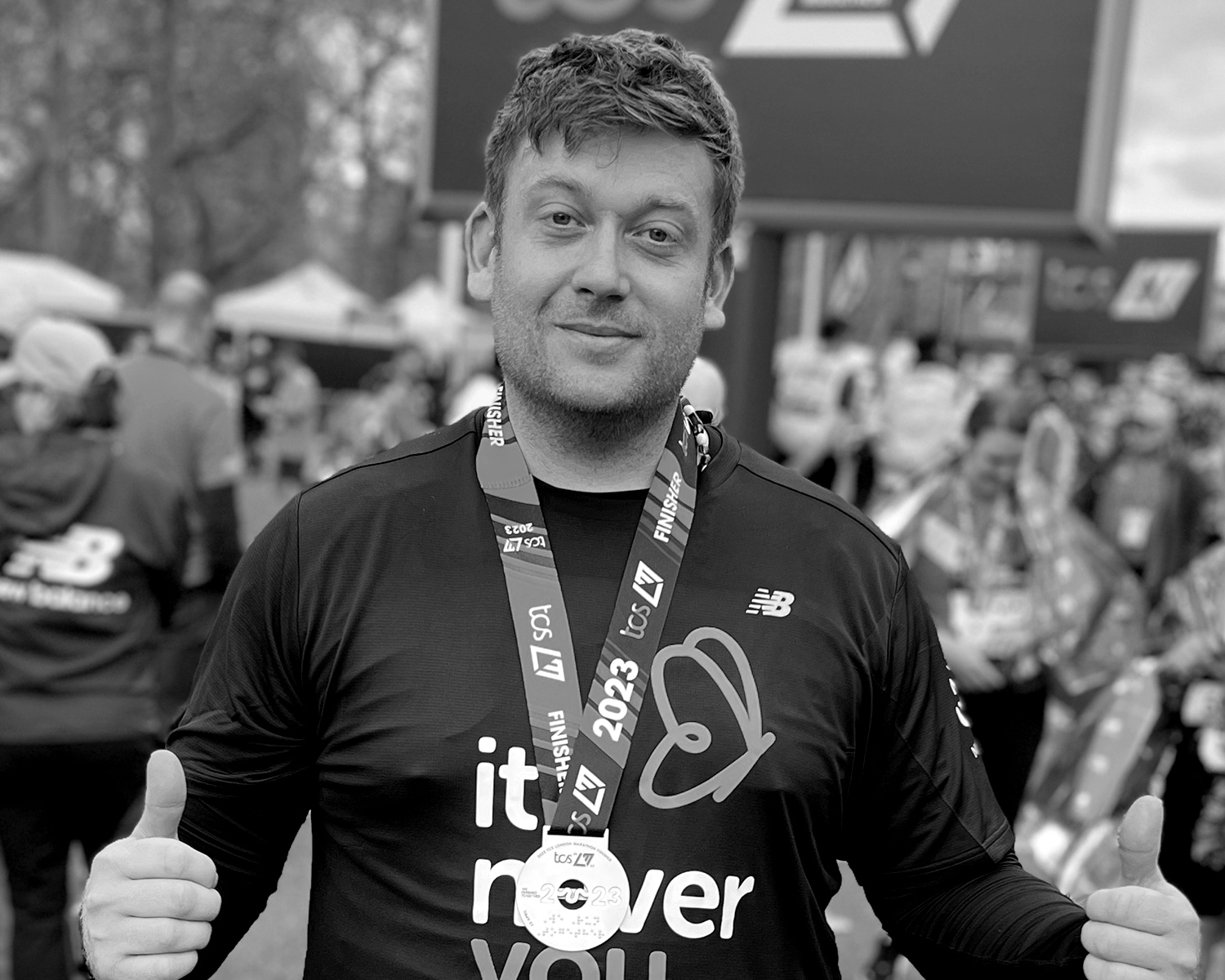
“It’s Never You” charity was set up by Ceri Menai-Davis and his wife Frances following the death of their son to cancer
We forget the actual biology of grief: the effect it has on our bodies is fairly understudied but it’s well known that grief hurts. Grief manifests as pain and weakens our immune systems. Studies show that a grieving person shows 17% more inflammation within their system than someone who isn’t experiencing elevated grief. If you’ve ever played golf with inflammation of joints you’ll know how tough this can be. A few nurofen pre-round may just help if you are aware of this fact.
Grief affects our immune system too. That old aged myth of dying from a broken heart is in fact true and women are most at risk. All the more reason, like Sue, to surround yourself with support and like-minded people.
Grief is a journey. Much like a round of golf. You have good parts, bad parts and parts that are completely out of your control of. Accepting the things that are out of our control doesn’t mean you can’t be upset by them. Once a bad shot has happened you can’t change it, but you will carry it with you for a while. I used this psychology when we lost Teddy, my grief was delayed as I kept telling myself I can’t change it.
One of the biggest mistakes people make is to assume that grief follows the same timeline for everyone, that time is a healer. Many people never actually accept loss until years after the death of a loved one. This is called prolonged grief.
Yet people say to me, “Well you must be ok now it’s been years.” Grief doesn’t just go away, it can’t be fixed. It stays forever. Your life just grows around it. You don’t recover, you just learn to accept and to appreciate. A valuable tool on the golf course and one that I’d urge anyone who has lost somebody, especially suddenly, is to go and seek bereavement counselling. This will help you appreciate the effects of grief, how you are dealing with it and also gives you a chance to talk freely. I guarantee that what you learn in these sessions will give you the tools that will help your golf. Why? Because they’ll help you manage your emotions.
This is a gift that grief gives us. It opens our eyes to life and all the small things that are so important. Things happen on the course and we can’t change or control much of them. Instead we learn to look ahead at the next shot and the next chapter in life. We can prepare ourselves but we aren’t really in control, so golf is a great way to move through the grieving process. That acceptance that we can’t go back, but we can look forward, will go a long way.
Golf offers so many benefits to someone who is looking for comfort or distraction; decide why you need golf and use it. Accept that grief will affect your golf and be grateful for everything your loved one taught you, including appreciation of time. Time spent on the course is a gift and time is something we should never take for granted.
We all play our own game, no one is the same, likewise we all grieve differently. That is ok and being aware of it is more powerful than anything.

Katie is an Advanced PGA professional with over 20 years of coaching experience. She helps golfers of every age and ability to be the best versions of themselves. In January 2022 she was named as one of Golf Monthly's Top 50 Coaches.
Katie coaches the individual and uses her vast experience in technique, psychology and golf fitness to fix problems in a logical manner that is effective - she makes golf simple. Katie is based in the South of England, on the edge of the New Forest. An experienced club coach, she developed GardenGOLF during lockdown and as well as coaching at Iford Golf Centre, The Caversham- Home of Reading Golf Club and Salisbury & South Wilts Golf Club.
She freelances, operating via pop-up clinics and travelling to clients homes to help them use their space to improve.
She has coached tour pros on both LET tour and the Challenge Tour as well as introduced many a beginner to the game.
Katie has been writing instructional content for magazines for 20 years. Her creative approach to writing is fuelled by her sideline as an artist.
Katie's Current What's In The Bag
Driver: TaylorMade Qi10 9degrees.
Fairway: TaylorMade Qi10 5wood
Hybrid: TaylorMade 4 & 5
Irons: TaylorMade 770 6-AW
Wedges: TaylorMade Tour Grind 4 54 & 58
Putter: TaylorMade Tour X 33"
Favourite Shoes: FootJoy HyperFlex with Tour Flex Pro Softspikes on the course.
-
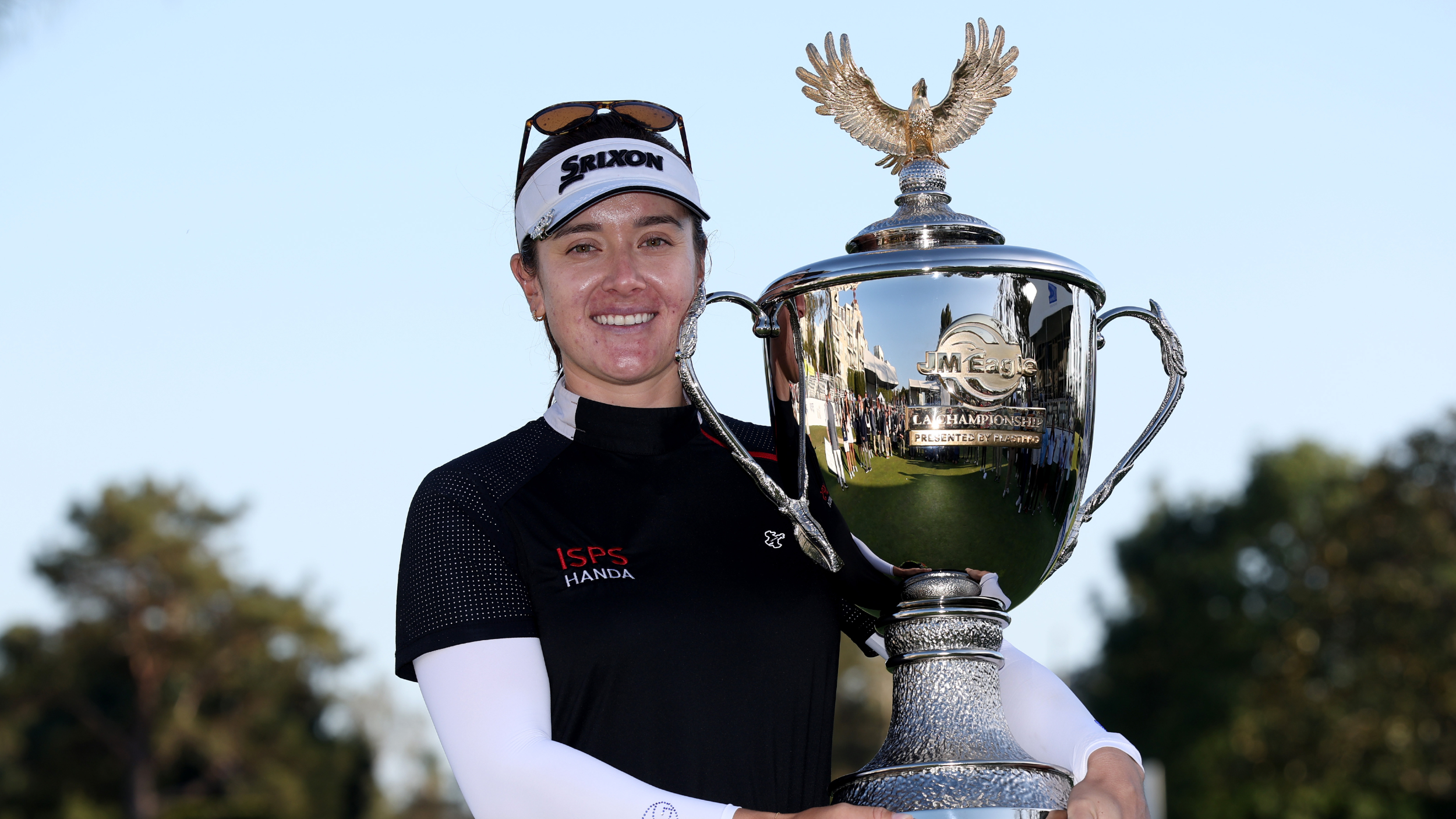 JM Eagle LA Championship Prize Money Payout 2025
JM Eagle LA Championship Prize Money Payout 2025The LPGA Tour heads to California for the JM Eagle LA Championship, where the largest prize money payout of the season so far is on the table
By Mike Hall
-
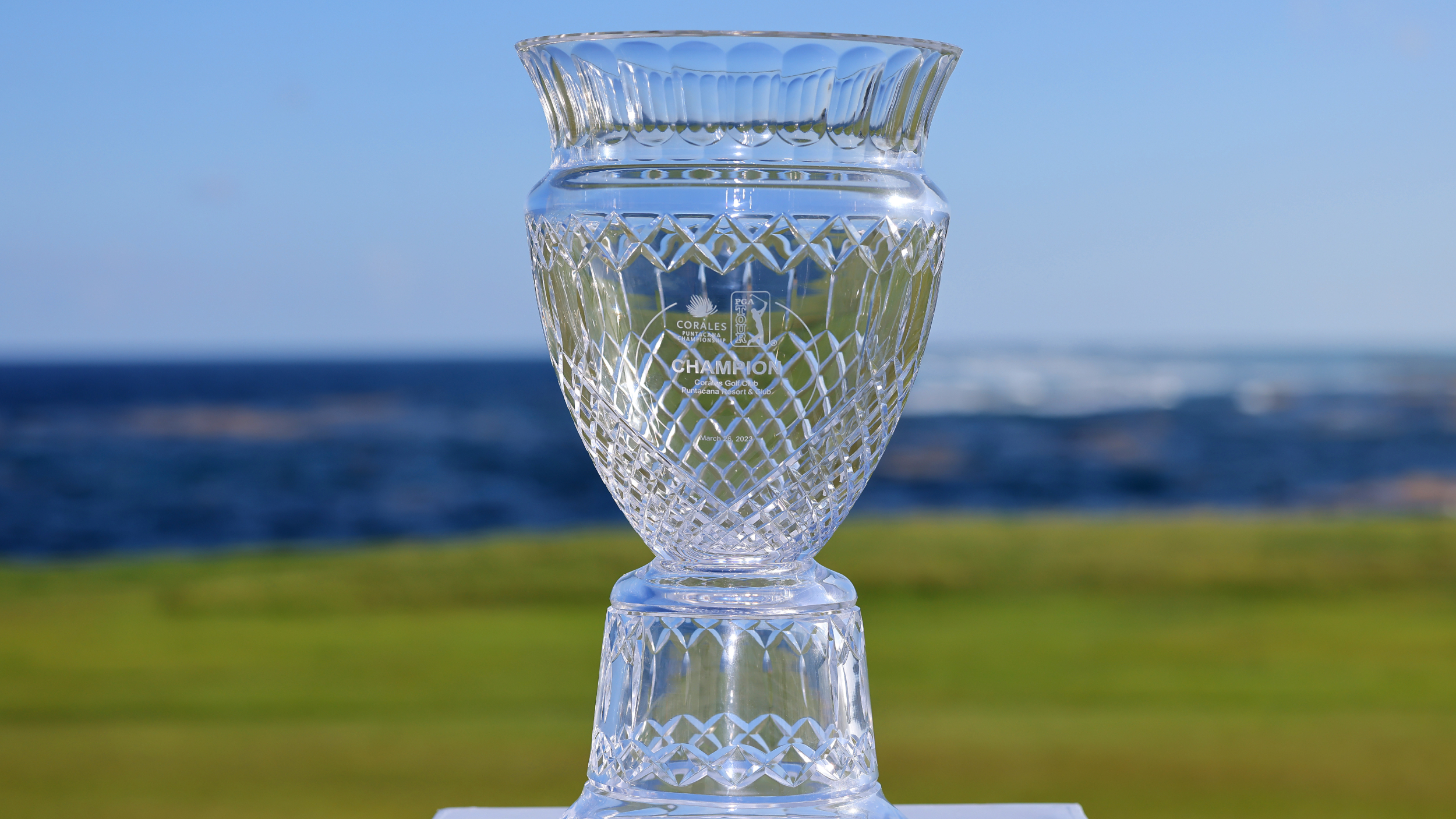 Corales Puntacana Championship Prize Money Payout 2025
Corales Puntacana Championship Prize Money Payout 2025The PGA Tour’s latest opposite field event features an attractive prize money payout and some former champions in the field
By Mike Hall
-
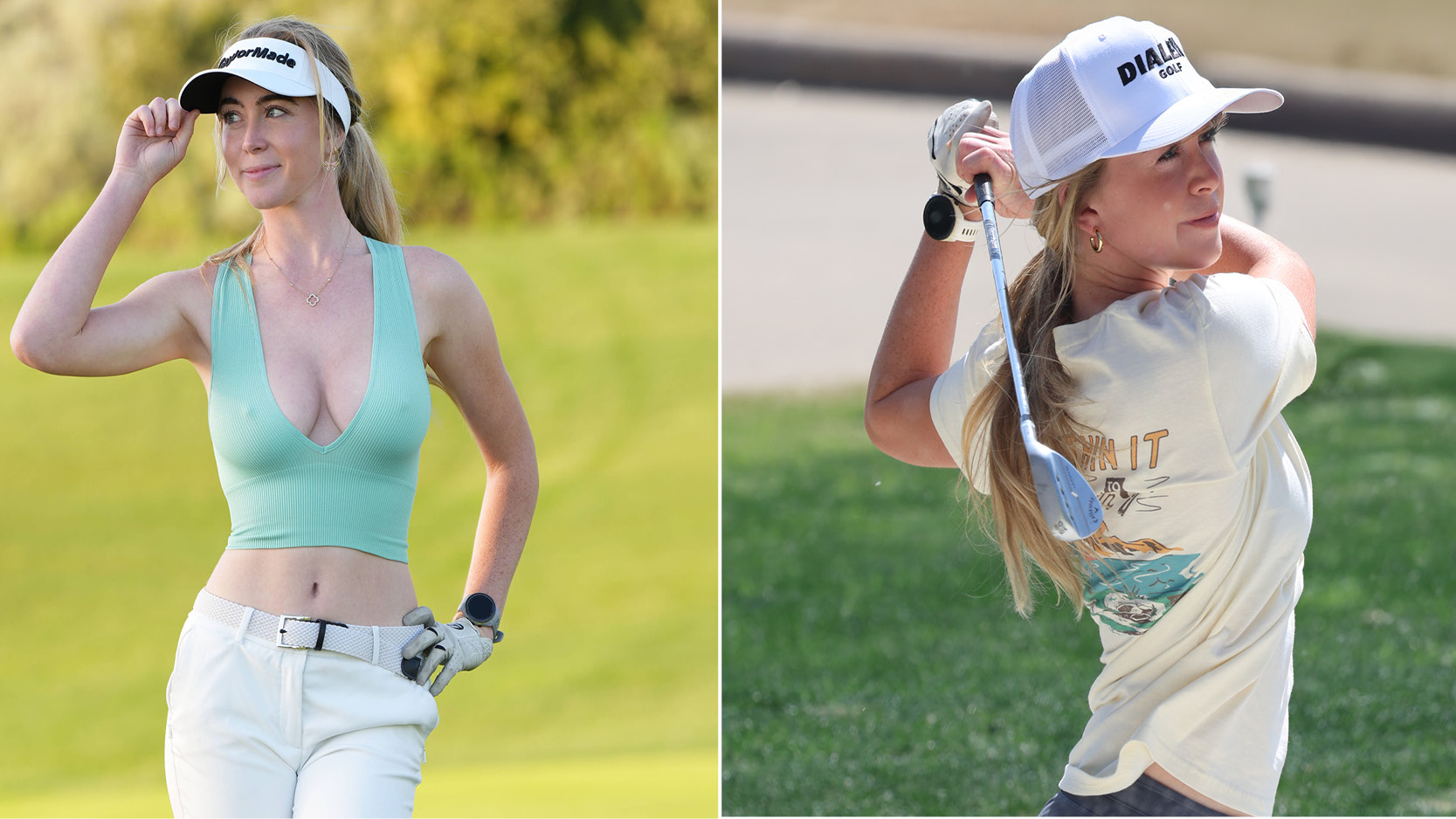 From Body-Baring To Dialed In: Grace Charis Redefines Golf Fashion
From Body-Baring To Dialed In: Grace Charis Redefines Golf FashionInfluential golf content creator Grace Charis launches new apparel brand
By Alison Root
-
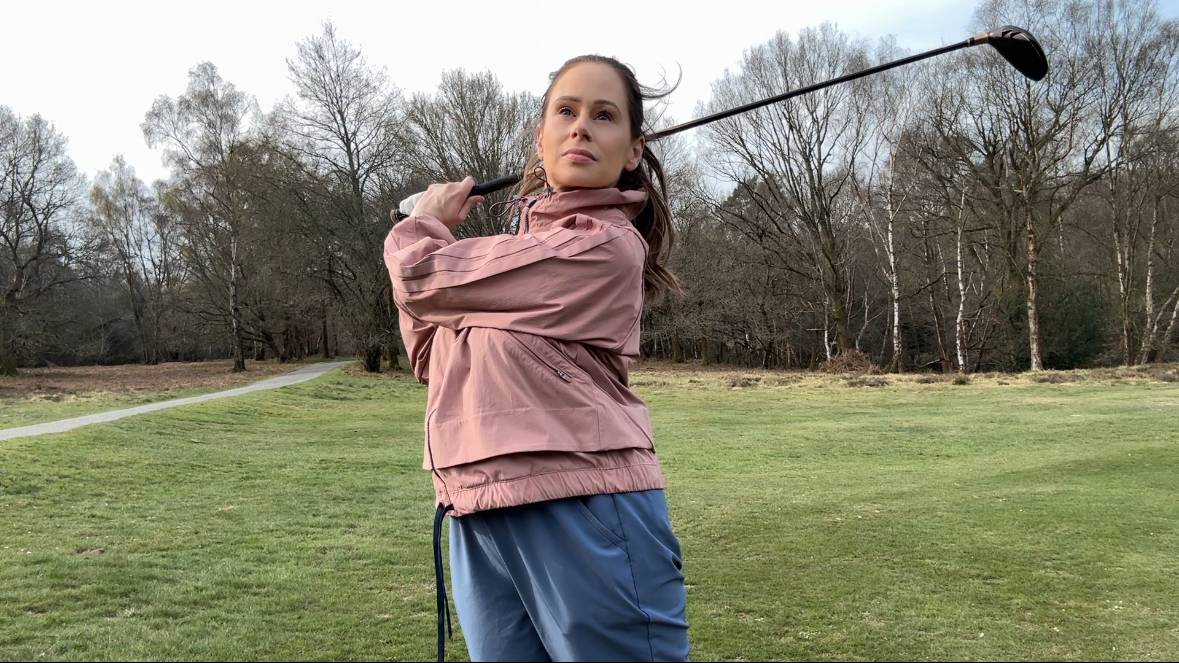 Golf Gave Me Confidence... Then Social Media's Toxic Culture Tried To Take It Away
Golf Gave Me Confidence... Then Social Media's Toxic Culture Tried To Take It AwayA young content creator's journey to own her golf game and her voice
By Katie Clarke
-
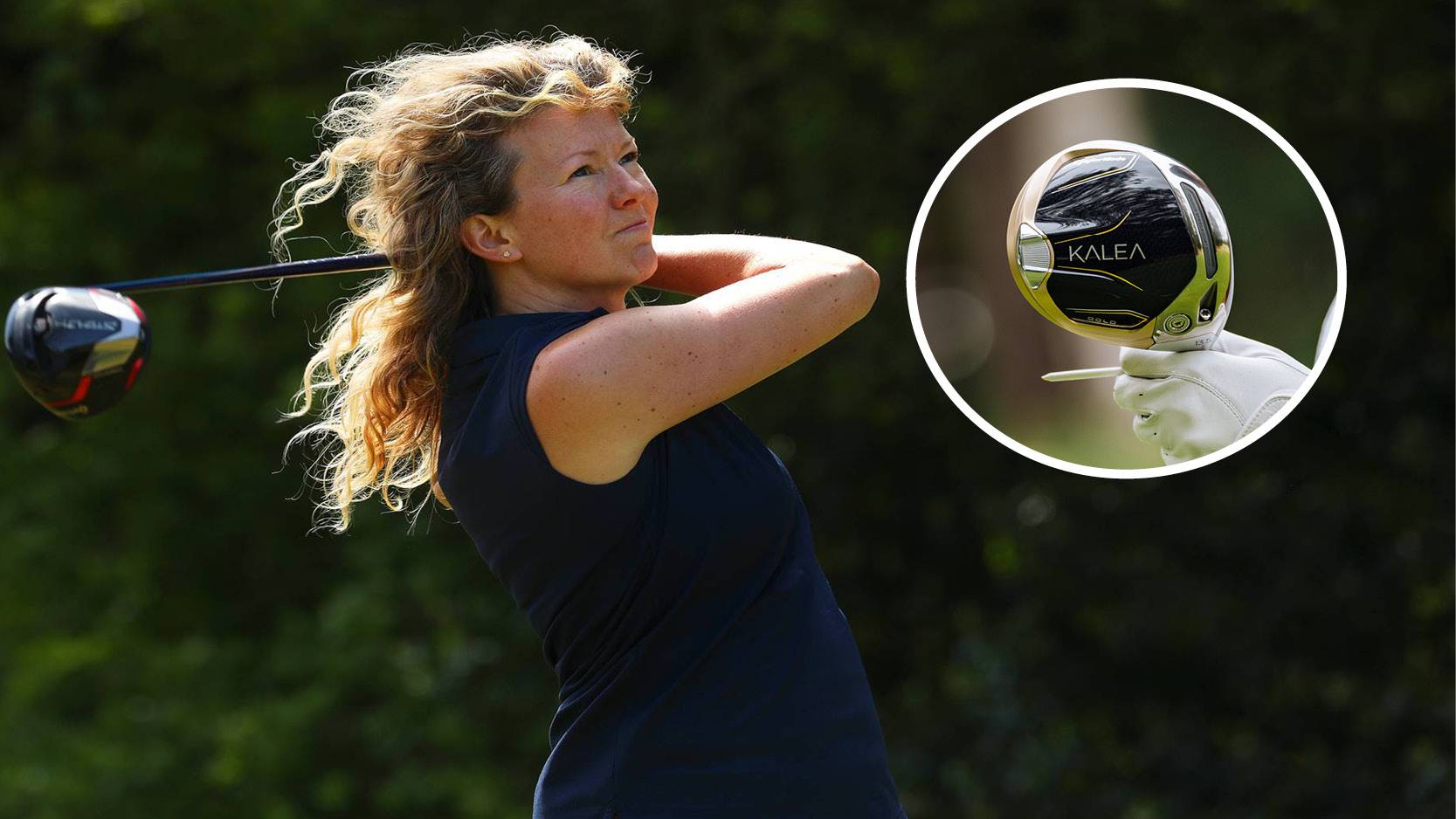 How Far Does The Average Female Club Golfer Hit Their Driver?
How Far Does The Average Female Club Golfer Hit Their Driver?We've looked at the data... Find out if you are hitting your driver an average distance
By Alison Root
-
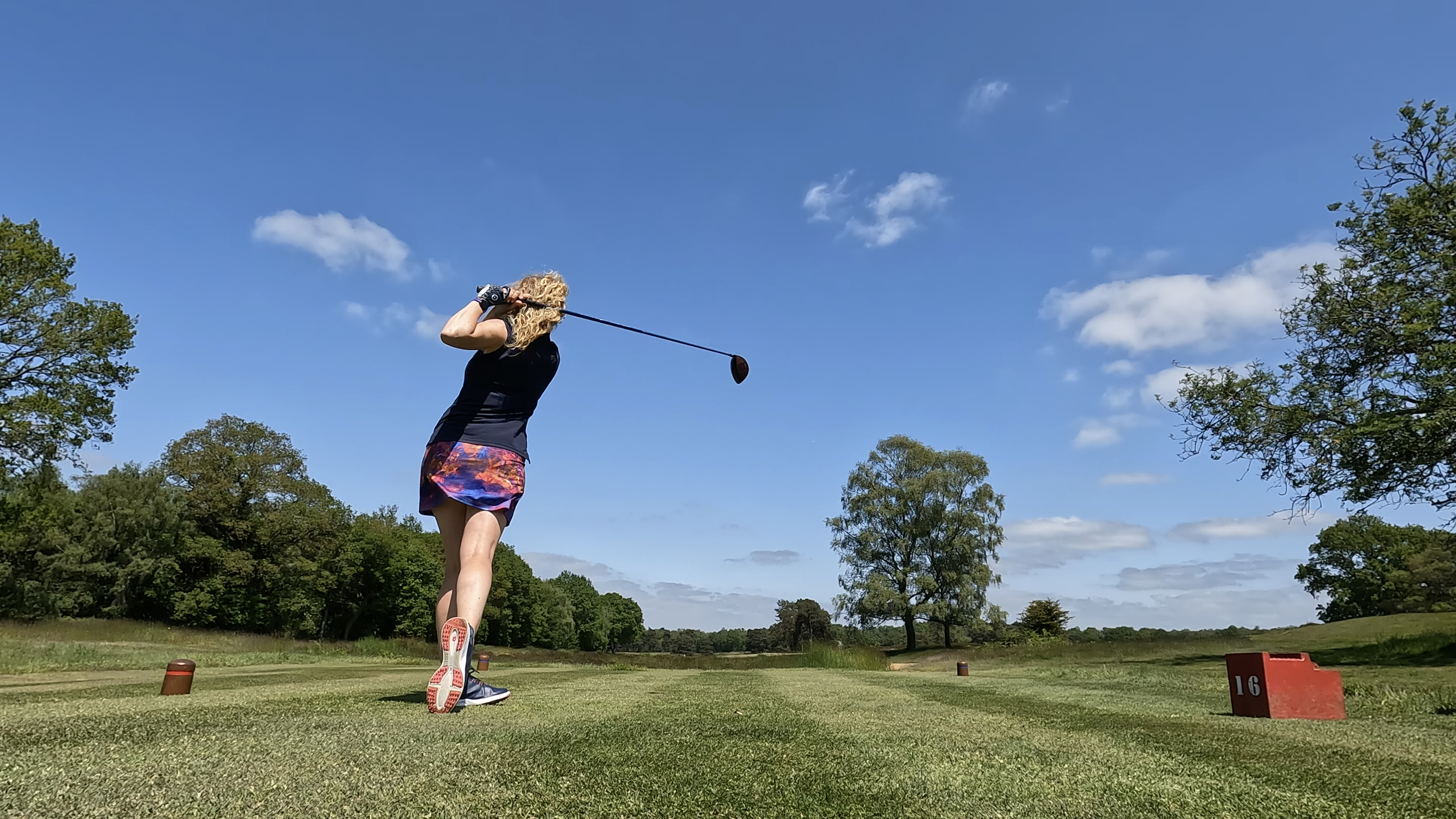 Tee Box Inequality: Why Aren't All Tees Rated For Women?
Tee Box Inequality: Why Aren't All Tees Rated For Women?Long-hitting female golfers are let down by tee ratings
By Katie Dawkins
-
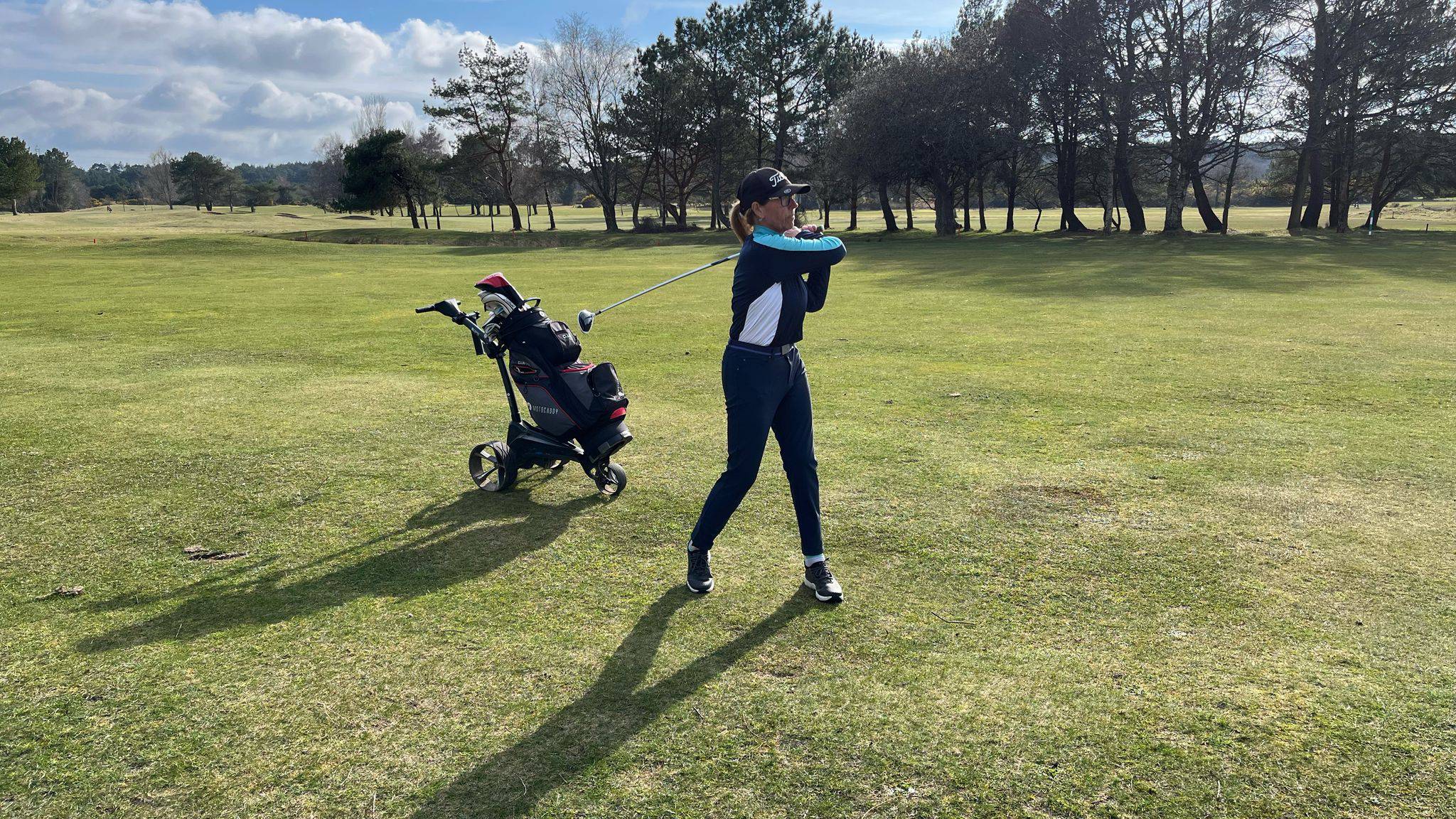 What I Learned From My First Golf Competition: The Unexpected Importance Of Preparation
What I Learned From My First Golf Competition: The Unexpected Importance Of PreparationPlaying in your first golf competition can be a daunting experience. Here are 5 tips to help you prepare for a stress-free round
By Carly Cummins
-
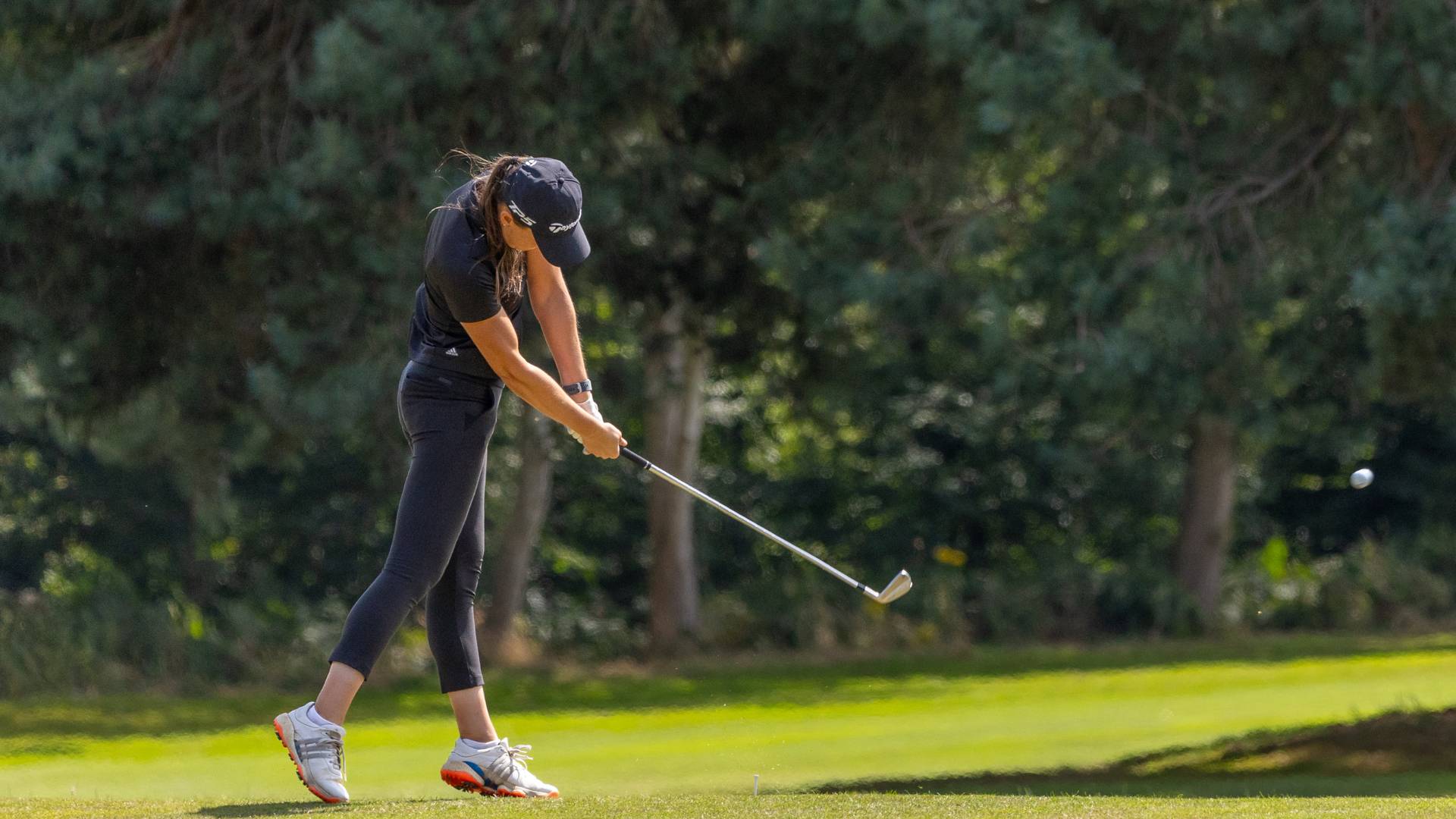 I've Always Struggled To Create That Solid, Compressed Strike... Until I Fixed These 5 Key Moves
I've Always Struggled To Create That Solid, Compressed Strike... Until I Fixed These 5 Key MovesSingle figure golfer Jess Ratcliffe on how she has fixed her swing puzzle to deliver crisp shots
By Jess Ratcliffe
-
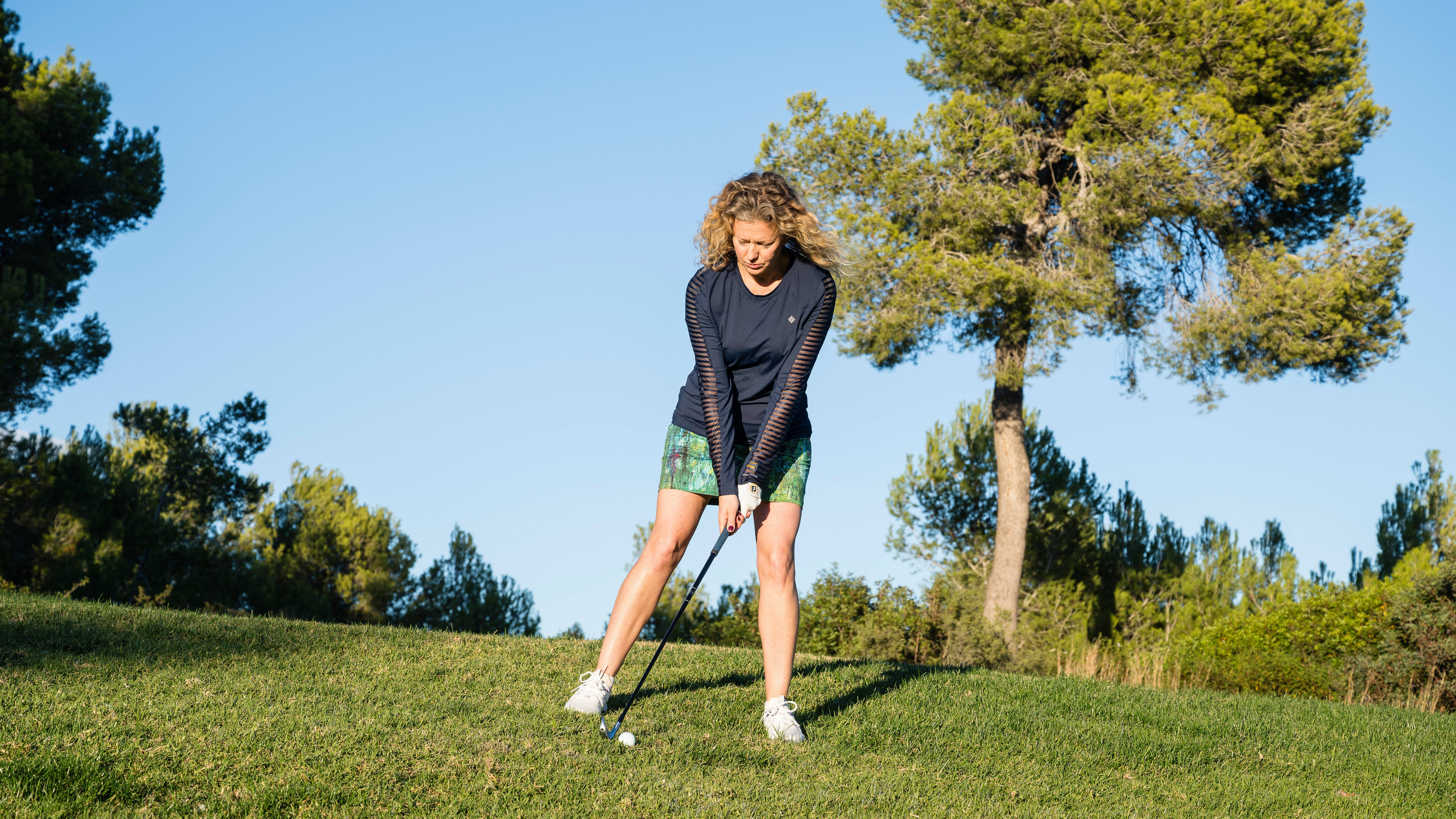 Fix These 7 Common Mistakes And You'll Be On The Path To Lower Scores
Fix These 7 Common Mistakes And You'll Be On The Path To Lower ScoresPGA Professional Emma Booth on how to fix the mistakes all high handicappers make
By Emma Booth
-
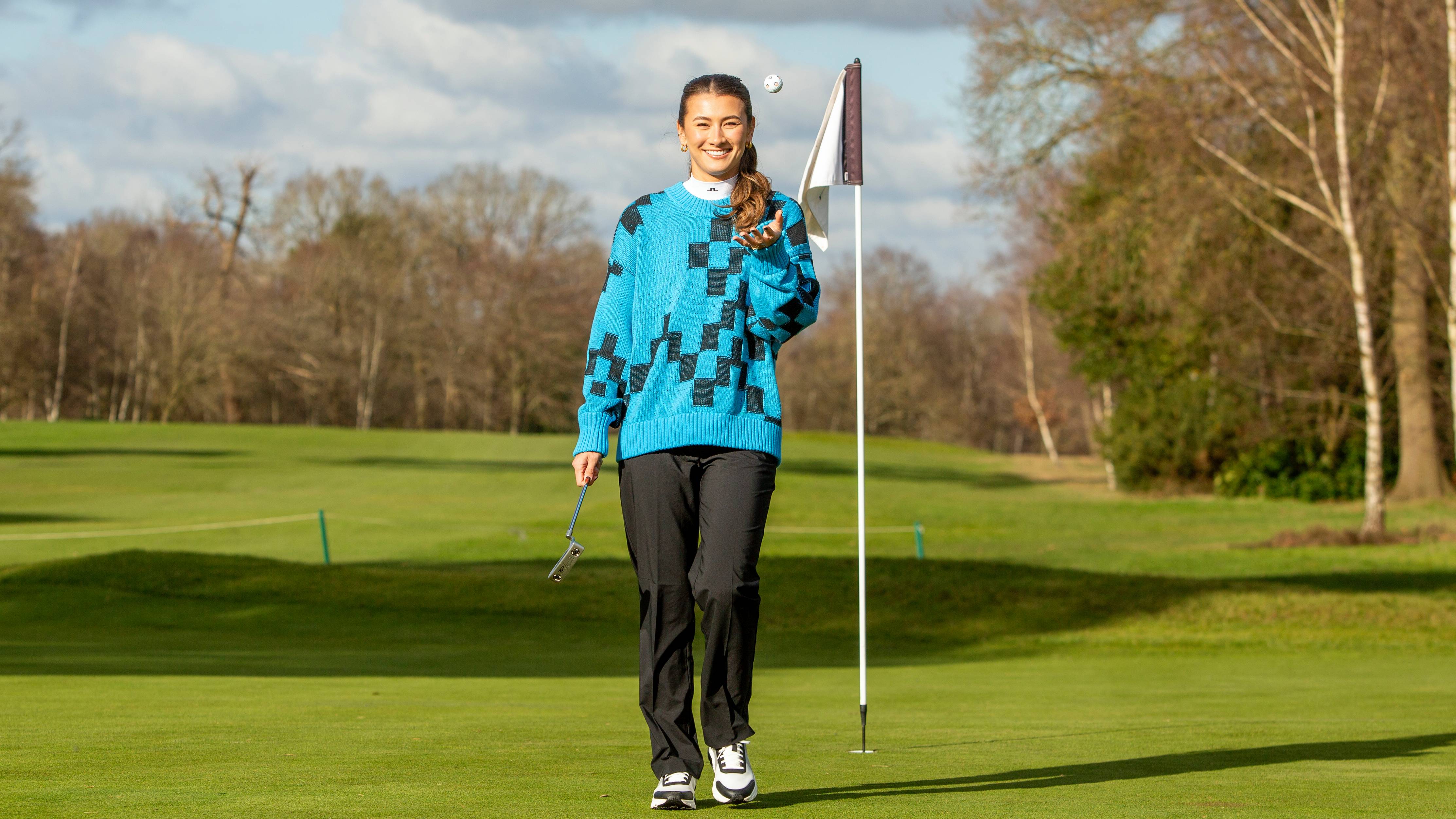 ‘It’s About Perception, Not Rules. Women Are Allowed To Wear A Lot More Than Men At Most Golf Courses’ - Mia Baker On Golf's Dress Code
‘It’s About Perception, Not Rules. Women Are Allowed To Wear A Lot More Than Men At Most Golf Courses’ - Mia Baker On Golf's Dress CodeContent creator and presenter Mia Baker on why changing mindsets is key to building a more inclusive golf community
By Alison Root